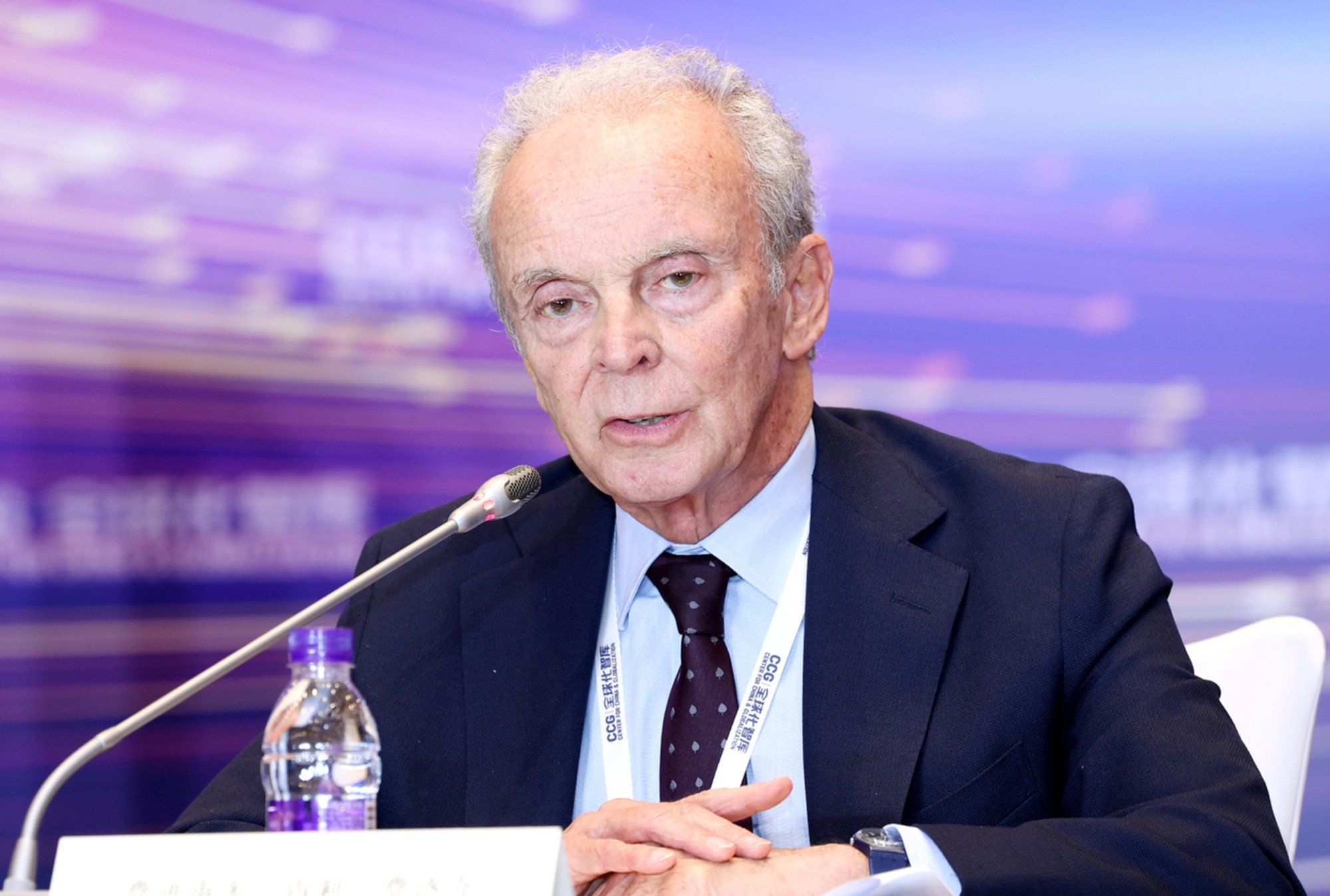
Is the EU de-risking for economic security or is it ‘hostile’ and anti-China?
- European observers tell forum that bloc is ‘right’ to question if economic playing field is fair in view of Covid-19, Ukraine war, and China’s overcapacity
- But Europe’s narrative and de-risking policy have created confusion for China and stifled cooperation, expert says
The sentiment is not shared by Beijing, though, with one Chinese expert calling the measures “concrete anti-China policy”.
China and the EU, he said, differed in their values and principles on issues related to domestic Chinese governance as well as Beijing’s positions on global affairs.
“We realised that our economy was excessively dependent on the external for many, many important supplies. We realised that we needed to become more autonomous,” he said at a round-table discussion on Saturday as part of a forum organised by the Centre for China and Globalisation think tank.
“This brought us to adopt a number of measures that were meant to reduce our dependencies and also to improve and increase our economic security.”

Feroci, who was European Commissioner for Industry and Entrepreneurship in 2014, said decoupling from China was not feasible, but a de-risking approach was “much more, in a sense, reasonable”.
Last year, the EU proposed to de-risk its trade relationship with China in response to the bloc’s economic dependence on China, and what it called an “increasingly assertive” Beijing on the world stage.
The bloc in September launched an investigation into subsidies in China’s electric vehicle industry, the results of which are imminent and expected to hit Chinese-made EVs with extra import duties.
The US, which this month announced substantially higher tariffs on Chinese goods including EVs and solar panels, has urged the EU to join Washington in curbing cheap Chinese exports.
Still, Feroci told the forum on Saturday, the EU’s strategy was “not meant to be interpreted as anti-Chinese”, but instead it was an approach that has “a general value and global application”.
“If it has a direct impact on you, China, it is only … because China’s economy is too important and too big. And the two economies of China and Europe are so interdependent that unavoidably China risks becoming a target of these measures,” he said.
“There’s nothing particularly aggressive on our side against China. We, in Europe, want to continue to have dialogue with China.”
Fabian Zuleeg, chief executive of the Brussels-based think tank European Policy Centre (EPC), added that the bloc’s de-risking strategy was an attempt to reduce future vulnerabilities and risks which had become obvious since Russia invaded Ukraine.
“It is about reducing the ability of others and that is why it is also about open strategic autonomy,” he said. “We are trying to achieve a reasonable level of economic security. And I would just say that I don’t think this is unusual. I think a lot of the world has been doing this for a long time.”
He said it was “right” that the EU questioned whether there was a level playing field in a number of different areas.
Georg Riekeles, head of the European political economy programme at EPC, agreed, citing wind turbines as an example.
He said European producers of the turbines faced “the greatest difficulties” in getting access to the China market, raising the question of whether Chinese producers should have such unfettered access to the EU.
China, however, did not see Europe’s actions in the same way, according to Liu Zuokui, director of the Institute of World History at the Chinese Academy of Social Sciences.
He said Europe’s de-risking strategy had brought “big uncertainties” to the world and stifled cooperation, and while the bloc had said its actions were not aimed at China, “we see more and more very concrete anti-China policy”.
“It is confusing to us whether the narrative and the policy is the same,” he said, calling EU actions “hostile”.
Europe’s relationship with China should also be viewed against the backdrop of the war in Ukraine, Riekeles said.
“There’s war in Europe and there’s war on Europe, and that is conditioning Europe’s mindset right now,” he said.
But the biggest issue in EU-China relations was that “a third actor has inserted itself between China and the EU … And that is Russia”, he added.
Europe, Riekeles suggested, was “profoundly uncomfortable” with the growing alignment of China, Russia, and North Korea.
Feroci, the former Italian permanent representative to the EU, added that Europe was “rather disappointed” by the role China had played in the Ukraine war so far. China has not openly condemned Russia’s actions and instead appeared to have grown closer to Moscow since the invasion.
“We would have expected a much clearer stance in condemning Russia’s aggression against Ukraine. We would have expected more solidarity in our efforts to isolate Russia, and a more proactive role in the search for a peaceful and political solution,” he said.

